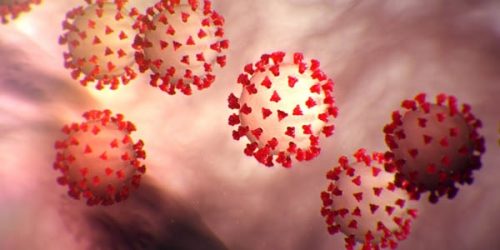
From the “Overwhelmed Ones” to “the Sociological Ones,” college students nationwide have reacted in different ways to the pandemic.
Coronavirus needs no introduction, and rightfully so. The repercussions of the virus on the economy, the lower class, and the health care system in America are unmatched. Life as we know it is coming to a halt, and it seems like every college student in America has a different opinion on the matter. Below are different college-student perspectives on COVID-19 I have observed.
The Overwhelmed Ones: The overwhelmed ones are scared, anxious, and are not coping with change well. Aside from the global pandemic, they are more concerned by how their daily lives have changed. Their college just shut down. They have been told to vacate their dorm/student housing. They will not see their friends until August. They will have to move completely to online classes, and will not be getting a tuition, food, or housing refund. Their mind is racing trying to figure out how they will survive transitioning from the most novel, stimulating environment they have ever been in (college) to the least (home with parents).
The Desensitized Ones: The desensitized ones do not understand the gravity of the situation, and are not practicing social distancing. Current college students are a generation victim to information overload, and are severely desensitized to all types of news. We have been on social media since adolescence, and are accustomed to constantly receiving shocking information. When everything is exaggerated, everything is a big deal, which means nothing is. Their desensitized nature makes this group a danger to themselves and everyone around them. They do not understand the importance of “flattening the curve” and are making the lives of the elderly, immunocompromised, and healthcare workers more difficult.
The Paranoid Ones: This group is over reacting to the gravity of the situation. They have bought three water bottle cases, 35 rolls of toilet paper, 10 boxes of pasta, and 15 packets of Clorox wipes. Rather than helping the situation through practical methods, they are perpetuating it, making goods inaccessible for lower income families and creating a sense of panic in the community. Urgency is important and causes people to act with caution and foresight. Panic creates selfishness, and relates to gun sales in America increasing as the pandemic worsens. In a time where empathy and compassion are needed most, panic and selfishness are the worst quality to display.
The Informed Ones: The informed ones are doing their part in researching and spreading reliable information. Though it is difficult to research and find information on such a new, under researched virus, they are trying their best. The informed one, most importantly, is pointing out misinformation and unreliable sources, which are very apparent all-over social media.
The “let’s buy cheap plane tickets” Ones: This group holds the most problematic mentality regarding COVID-19. It is most common in younger people who are unaffected, and who feel that because they are not old or immunocompromised and don’t interact with anyone old or immunocompromised, it is not their job to care about the spread. They are severely undereducated about the situation, and are the reason the spread is so difficult to slow.
The Sociological Ones: The sociological ones are interested most by the implications COVID-19 has on American society and culture. American culture is one based in productivity and capitalism, where everyone is used to bringing their work home, working overtime, and constantly thinking about and stressing about work. Now, hundreds of Americans who were used to not having a minute to spare in their days are plagued with boredom and cabin fever. The sociological ones are amazed at how a culture so rooted in productivity and efficiency can so quickly slow down. The sociological ones cannot wait to see the implications the virus will have on American culture as a whole, and believe that this virus is proof to Americans that productivity is not everything, and it is possible to slow down, engage in hobbies, and live a more relaxed life. The sociological ones are also interested in how different generations, ethnicities, and regions are reacting to the virus, and the implications of their responses on their cultures.
Towards the beginning of the virus spread, there were a much broader range of mentalities and opinions. As everyone is becoming more educated and aware of the role each individual plays, the mentalities are converging. I now see more of “The Informed Ones” fully understanding the interdependence of the situation, and less of The “let’s buy cheap plane tickets” Ones. Most importantly, kind and empathetic companies, professors, grocery store employees, and health care workers are inspiring the creation of a new and more powerful group – The Compassionate Ones.
RELATED POSTS:
India bans travel from US, rest of the world beginning March 22 for one week (March 19, 2020)
India’s visa suspension creates anxiety, confusion in the US (March 13, 2020)
Indian Americans step forward to help in COVID-19 crisis (March 17, 2020)
India’s Kerala state shows how to fight Coronavirus (March 18, 2020)
Coronavirus starts a toilet paper run in North America (March 13, 2020)
Hundreds of Coronavirus fighting Indian doctors stuck in green card backlog (March 18, 2020)
India’s visa suspension creates anxiety, confusion in the US (March 13, 2020)
How India lover Elizabeth Schneider survived dreaded Coronavirus (March 12, 2020)
Religious institutions live stream prayer services amid Coronavirus shut down (March 15, 2020)
Indian American led team translating COVID-19 info in 30 languages (March 17, 2020)
Hum some desi tunes to fight Coronavirus blues! (March 17, 2020)




1 Comment
I think you should look at the weather, temperatures around the world. I believe it does affect the corona virus.
I heard that sunshine with temperatures between 75 and 85 degrees or more kills the virus. If you look at the southern Hemisphere compared to the northern Hemisphere you will see less cases. And most of those may be travel related.